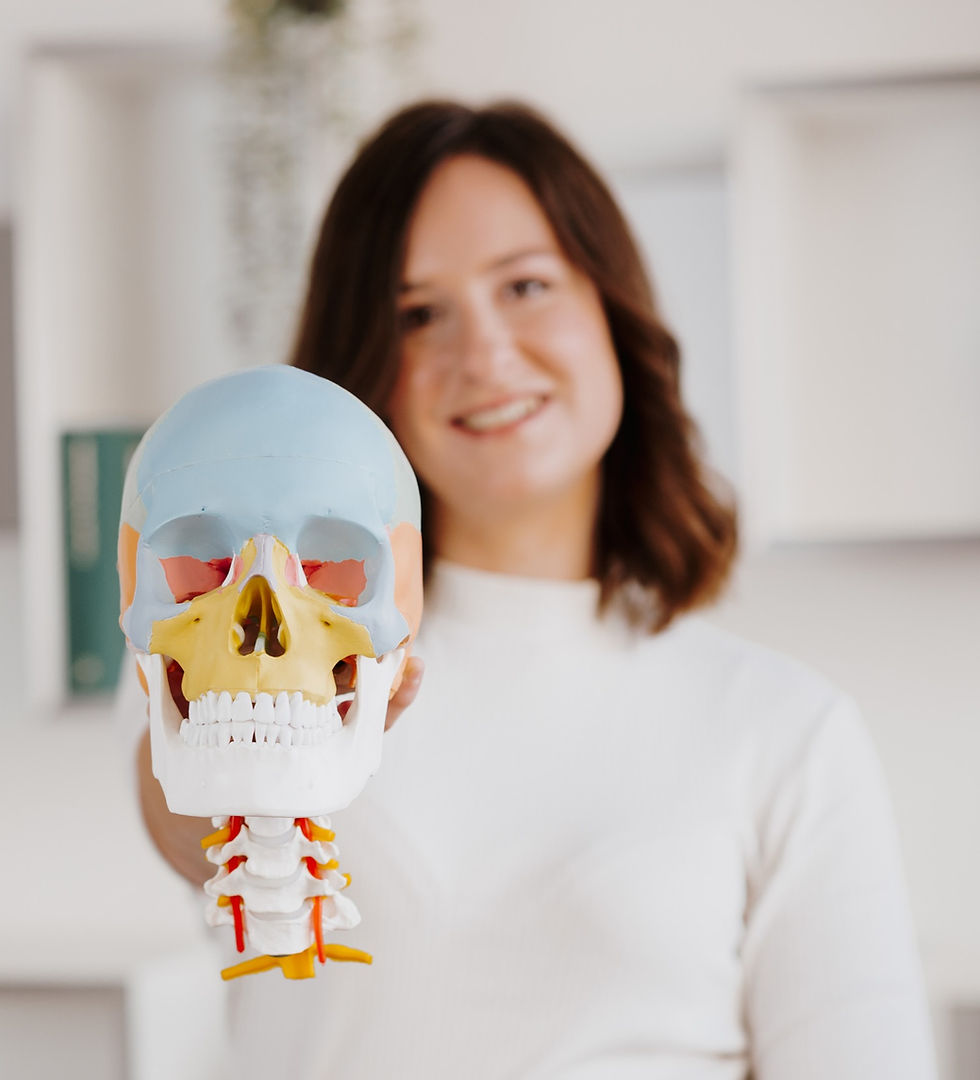Why are healthy teeth so important?
- Mariella Koch

- Oct 31, 2023
- 2 min read
Dental diseases can promote serious illnesses in the body. It has now been proven that teeth are closely associated with internal organs. For example, the kidneys and bladder, with the incisors. There are therefore studies that try to find out how this knowledge can be used in conventional medicine.
Dental diseases such as periodontitis can also trigger or promote serious systemic diseases. Periodontitis is a bacterial inflammation of the gums and the tissue that surrounds the tooth and anchors it to the jawbone. Since this tissue is supplied with oxygen and nutrients via the capillaries and the oxygen-deficient blood is transported back to the heart via small veins, the bacteria can also be spread into the body via this route. It is possible for the germs to infect a wide variety of organs via the bloodstream; this is particularly well-known in the heart and lungs. Periodontitis can therefore cause inflammation of the inner lining of the heart (endocarditis) and affect the heart valves.
Due to the constant stress on the immune system, it is also possible that existing diseases may worsen. Studies have shown that chronic inflammation of the periodontium can also worsen blood sugar levels in diabetics and exacerbate high blood pressure. There are also studies that link erectile dysfunction, bladder and prostate diseases and even cancer and premature birth with diseases in the oral cavity.
If you suffer from CMD/TMJ, i.e. a disorder of your jaw joints, remember that the cause can also be your teeth. Tooth pain can lead to conscious or subconscious compensatory posture and jaw movements when chewing to avoid pain. This can put strain on your jaw joints and cause long-term damage to your teeth or joint and, according to some studies, even trigger depression.
It is all the more important that the treatment of jaw joint problems is coordinated on an interdisciplinary basis with your dentist, your physiotherapist or osteopath and Heilpraktiker and, if necessary, with your family doctor, internist or cardiologist. Only a dentist can competently and adequately diagnose and treat diseased teeth. Physiotherapeutic/osteopathic therapy for the jaw joints is not included in the training as standard and should therefore be carried out by specially trained and advanced therapists. Otherwise there is a risk of injury to joint structures or the mucous membrane.
Do you have any questions? Then please contact us!
In order to make reading easier, the language forms male, female and diverse (m/f/d) were not used at the same time. All personal and job titles apply equally to all genders.





Comments